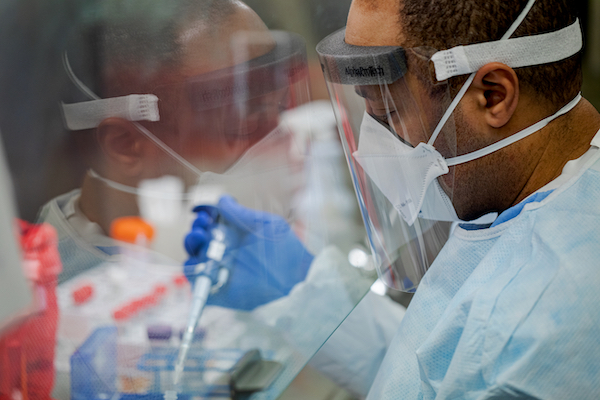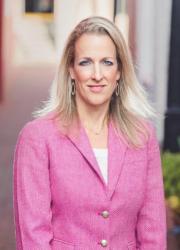It is in the most desperate of times that we must not forget our principles. Globally, we are facing desperate times. In the United States, unemployment rolls doubled in just one week, climbing to 6.6 million unemployment claims for the week ending March 28, 2020. As more Americans are asked to stay at home, many have become unemployed. Additionally, the potential death toll scares us, and we beg for scientists to expedite new tests, anti-viral drugs, and vaccines.
These are desperate times indeed. Now more than ever we must adhere to the truth.
These facts remain: We are created in the image and likeness of God; we need each other; and together, we can solve problems. These are true, because they reflect our God-created human nature. God designed us in His image and likeness. Genesis 1:26-28 teaches us about our nature and our purpose:
Then God said, “Let us make mankind in our image, in our likeness, so that they may rule over the fish in the sea and the birds in the sky, over the livestock and all the wild animals, and over all the creatures that move along the ground.” So God created mankind in his own image, in the image of God he created them; male and female he created them. God blessed them and said to them, “Be fruitful and increase in number; fill the earth and subdue it. Rule over the fish in the sea and the birds in the sky and over every living creature that moves on the ground.”
Here we learn about our capabilities and responsibilities. We are created in imago Dei. We bear the image of God, and that bestows upon us inestimable dignity. It also endows us with creativity. We cannot create in the same manner as God, but we must use our gifts and skills to be creative for the purpose of problem-solving and service. When this happens in the context of voluntary market exchange—directed by prices, profits and losses, and supply and demand—we are empowered and encouraged to serve others.
This is precisely what the world needs right now, and the good news is that it is already occurring.
In the face of almost overnight and unprecedented needs, manufacturers and suppliers are shifting production to masks, hospital gowns, hand sanitizer, and ventilators. According to the Milken Institute, there are 75 treatments being developed, including 36 vaccines. Companies are working around the clock to bring better COVID-19 tests to the market. Abbott Laboratories is working on a five-minute test and aims to manufacture 50,000 tests a day.
In desperate times, this is precisely what we need. The market is nimble. It doesn’t need to wait for committee approval or wade through long bureaucratic processes. Rather, it springs into action.
The role of entrepreneurs, big and small, is to ascertain the most pressing needs of consumers and rush to fill those needs. Almost overnight, some of our most pressing needs have changed: vaccines, ventilators, hand sanitizer. The market is working by allowing people to fill those needs as quickly as possible. Markets are about human discovery, and they provide the setting for each of us to use our human creativity to care for each other.
Creativity will kill COVID-19. If there is a silver lining in all of this, it’s that some of the most onerous business regulations are being rolled back. We can only hope that they are permanently swept into the dustbin. After all, if regulations aren’t necessary in a crisis, are they ever necessary?
The best thing the FDA can do now is get out of the way. Allow human creativity and entrepreneurship to step in, and we will beat this thing. There will be a day when we don’t have to shelter in place, when we can hug an old friend, when we can go out to eat with family, and when we can all get back to work. Those unemployment numbers don’t have to last forever. But if we don’t let entrepreneurship solve these very serious issues we face, they will last longer than necessary.
(Photo credit: Governor Tom Wolf. CC BY 2.0.)

